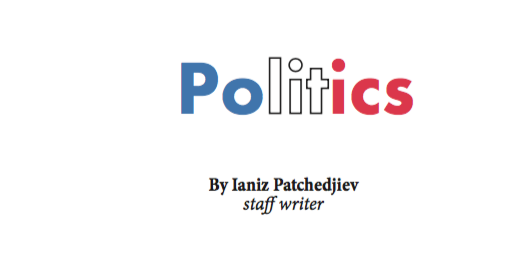By Ianiz Patchedjiev
The Battle for New York
With the New York Primary rapidly approaching, the remaining presidential candidates are fiercely campaign for a victory in the crucial state. On the same night, Bernie and Hillary clashed in what is likely to be their final debate while the GOP hosted a Gala to rally support in New York City.
Ted Cruz, the man many believe to be the GOP’s last hope in stopping Trump, is certainly in for an up-hill battle in New York. His opponents, John Kasich and Donald Trump, both have significant advantages over him in the state.
For instance, Kasich recently received the endorsement of George Pataki, the former governor of New York, while Trump has been leading in state polls thanks to his large business presence in NYC. In fact, at the GOP Gala last Thursday, Cruz was largely ignored by the crowd when he gave his speech; instead of listening, the crowd continued to chatter at their dinner tables, stand and take selfies, and even leave the dinner altogether.
Perhaps the reason why Cruz is struggling so much in New York is his recent criticism of Trump having “New York values.” Trump, capitalizing on Cruz’s comment, dedicated his speech at the Gala to proudly explaining New York values like “honesty” and “big energy.” In fact, Mayor de Blasio of NYC stated that “the hypocrisy of Ted Cruz is pretty clear here and we don’t take kindly to it,” after being shown the front page of the New York Daily News, which read “Take the F U train Ted!”.
On the Democrat side, Bernie Sanders and Hillary Clinton have also been campaigning hard for support among New York voters. This upcoming primary is especially important for both candidates because they both have roots in the state; Sanders was born and raised in Brooklyn while Clinton served as a senator of NY for eight years.
Last Thursday, the two participated in what is likely to be their final debate in Brooklyn after weeks of arguing and even a personal push by Mayor de Blasio. At the debate, Sanders echoed his disapproval of Clinton’s judgement on the Iraq War, Trade deals, Super Pac funding, and her refusal to release her transcripts of private speeches made to financial corporations. Clinton struck back, criticizing Sanders on gun regulation, his tax returns, and the lack of details in his plans.
Most notably, the two differed on their approaches to climate change; Sanders argued that “incremental steps are not enough” and that the Paris Agreement reached internationally was too light while Clinton defended the current state of progress and realistic and satisfactory.
When it came to foreign policy, Sanders called out the Israeli Government’s war in Gaza during 2014 as aggressive and stated that peace can only come when Palestinians are also respected.
In a rare moment of agreement, the two candidates agreed that the 1990s crime reform disproportionately affected African Americans in a negative way and expressed their regret over the 1994 Crime Bill. While Clinton is leading in state polls, a strong showing by Sanders is all he needs to continue the primary race.



























